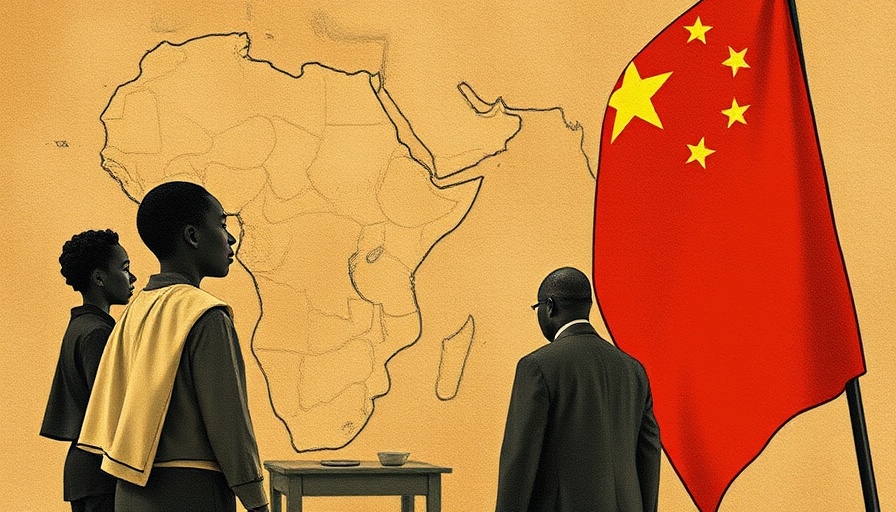
Understanding the Shift: US Aid Cuts and China's Position
The landscape of international aid is witnessing a significant transformation, particularly in the context of Africa. Recently, China announced a substantial financial package directed at Kenya: a Ksh1.8 billion (approximately $14 million) grant aimed at enhancing health services by upgrading five critical hospitals across the nation. This move coincides with the US government's decision to reduce funding through its primary development agency, USAid, jeopardizing African nations' access to crucial health initiatives and infrastructure support.
The Implications of USAid Reductions
The USAid cuts, which total $75 billion, are expected to have dire consequences, especially given African countries' heavy reliance on American assistance. In the fiscal year ending in 2024, USAid is projected to deliver about $32.5 billion to Africa, with key allocations to programs that address health crises like malaria and HIV/AIDS. Important recipients of these funds, such as Ethiopia, Somalia, and Kenya, stand to face diminished healthcare services that have been critical to their populations. A clear consequence is that more than just aid is at stake; it’s a matter of influencing American diplomatic power and soft presence within the continent.
China’s Strategic Move
As the US retracts its support, China is strategically positioning itself as an alternative benefactor. A significant influx of Chinese investment and aid could very well reshape African nations' diplomatic and economic alignments. Not only does China's financial commitment enhance infrastructure development, but it also cultivates lasting partnerships that could yield economic dividends for Beijing. This dynamic is essential for investors and policymakers who monitor the shifting geopolitical landscape as countries like Kenya may find themselves making choices that align with Chinese interests over traditional Western alliances.
Surging Political Implications
The ramifications of the US's withdrawal from its leading role in African aid extend beyond economic and humanitarian considerations to the realm of political interest. Democratic policymakers in the US, including notable Senators like Jeanne Shaheen, express concerns over the potential void left by reduced engagement, warning that China’s ascent in Africa isn’t merely an economic opportunity but a strategic challenge to American influence. The sentiment is that fostering partnerships through aid is crucial in combating issues such as terrorism and global health crises, thereby maintaining stability within African regions.
What's Next for Africa?
The trajectory forward for Africa in light of these changes is yet unclear, but the implications are profound. If the US continues its reduction of aid, it may inadvertently hand crucial leverage to China, affecting both diplomatic relations and trade dynamics significantly. Investors and political analysts should remain vigilant to understand how these shifts in power dynamics will influence Africa's position within the global economy and its evolving role in global geopolitics.
Engagement in Africa's future is essential; the political, economic, and social repercussions of this aid shift could define the landscape for geopolitical relations for years to come. Understanding the relationship between aid, influence, and governance will be key to navigating this complex and evolving region.
 Add Row
Add Row  Add
Add 


Write A Comment